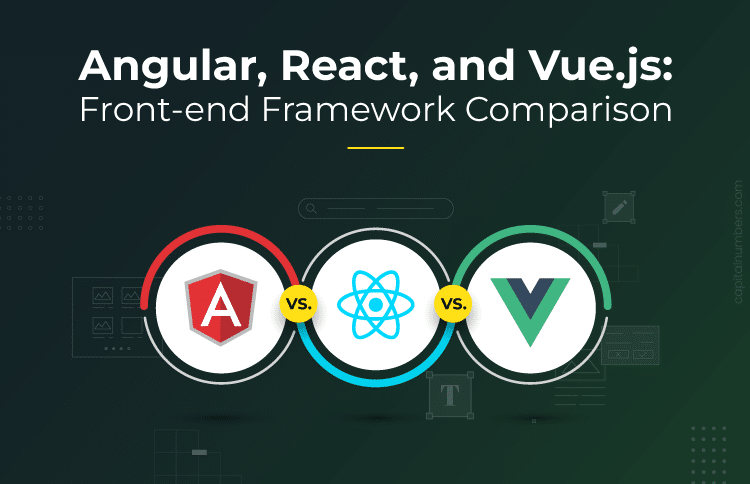In the fast-paced world of web development, choosing the right front-end framework can shape your career path and productivity. With the rise of modern applications and increasingly complex UIs, developers are turning to frameworks like React, Vue, and Angular to streamline the process.
But in 2025, which one should you learn — especially if you’re just starting or aiming to upskill?
Let’s break down the key differences, use cases, learning curves, and career opportunities of these three major frameworks so you can make an informed choice.
1. React: The Flexible Powerhouse
Overview:
Developed and maintained by Meta (Facebook), React is technically a library, but it functions like a framework when combined with other tools. Its component-based architecture and virtual DOM make it ideal for building fast, scalable web applications.
Pros:
- Huge ecosystem (Next.js, Redux, React Native)
- Massive community and job market
- Excellent documentation and tutorials
- Reusable components and hooks
Cons:
- Steeper learning curve with state management tools
- Boilerplate code without frameworks like Next.js
Best For:
- Developers who want flexibility and control
- Startups and large-scale apps
- Developers interested in building mobile apps with React Native
Career Outlook:
React continues to dominate job boards. In 2025, it remains the most requested front-end skill by employers worldwide.
2. Vue: The Developer-Friendly Favorite
Overview:
Vue is a progressive JavaScript framework created by Evan You. It’s known for its simplicity and elegant syntax, making it a favorite among beginners and solo developers.
Pros:
- Easy to learn and integrate
- Two-way data binding (like Angular, but simpler)
- Great for small to medium apps
- Clear, concise documentation
Cons:
- Smaller job market (outside Asia and startups)
- Less enterprise adoption compared to React/Angular
Best For:
- Beginners who want a smooth learning curve
- Quick MVPs or prototypes
- Freelancers and individual contributors
Career Outlook:
While Vue has a smaller market share, it’s growing fast, especially in Asia and among startups. Vue 4’s evolution in 2025 brings even more stability and performance gains.
3. Angular: The Enterprise Titan
Overview:
Angular is a full-fledged framework maintained by Google. It comes with everything you need out-of-the-box — routing, state management, form validation, and more — using TypeScript.
Pros:
- Complete framework with batteries included
- Strong tooling and scalability
- Backed by Google and widely used in enterprise
Cons:
- Steep learning curve
- Verbose and complex for small apps
- Less beginner-friendly
Best For:
- Developers working in large, structured teams
- Enterprise-level applications
- Engineers who already know TypeScript
Career Outlook:
Angular remains a top choice for enterprise roles. In 2025, many large corporations will still depend on Angular for internal dashboards and admin tools.
React vs. Vue vs. Angular: Quick Comparison Table
| Feature | React | Vue | Angular |
| Type | Library | Framework | Full Framework |
| Learning Curve | Moderate | Easy | Steep |
| Language | JavaScript/JSX | JavaScript | TypeScript |
| Performance | High | High | Medium |
| Job Market | Very High | Moderate | High (Enterprise) |
| Best For | Flexibility, Scale | Simplicity, Prototyping | Enterprise Apps |
So, Which One Should You Learn in 2025?
Choose React if:
- You want the broadest job opportunities
- You’re interested in mobile/web synergy (React Native)
- You’re building apps at scale
Choose Vue if:
- You’re a beginner who wants to build fast
- You enjoy elegant syntax and fast prototyping
- You’re working with startups or solo projects
Choose Angular if:
- You’re aiming for a corporate or enterprise job
- You already know or want to learn TypeScript
- You’re working in a large development team
Final Thoughts: There’s No Wrong Choice
Each framework has its strengths. The most important thing is to start building. Whichever framework you choose, your experience with components, routing, and state management will translate across the board.

